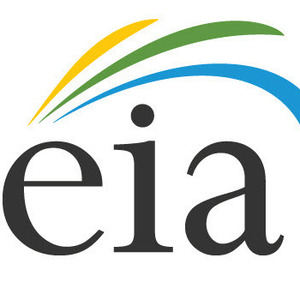EIA releases Annual Energy Outlook 2025

April 15, 2025
BY Erin Voegele
The U.S. Energy Information Administration on April 15 released its Annual Energy Outlook 2025 (AEO2025), which includes long-term energy trend projections through 2050. The U.S. Department of Energy, however, is cautioning that the forecasts do not reflect energy policy changes implemented by the Trump Administration.
The EIA is required to produce AEO reports by law. The agency prepares the AEO by using the National Energy Modeling System to project a set of scenarios that, taken together, represent a range of outcomes for the U.S. energy system. In general, the AEO2025 considers laws and regulations that were implemented as of December 2024.
The report includes 11 cases that model a range of assumptions, including the AEO2025 reference case, which assesses how the U.S. energy markets could operate under laws and regulations current as of December 2024 and under historically observed technological growth assumptions. In addition to the reference case, the AEO2025 includes two alternative policy cases and eight core side cases.
Advertisement
The cases include data on a wide range of energy types, including biofuels. The reference case predicts E85 use will decline by 3.5% between 2024 and 2050. Total ethanol blending is expected to fall by 1.3%, with biodiesel use falling 3.5% and renewable diesel and gasoline consumption increasing 2.8% over the same time period.
Under the reference case, the total U.S. supply of ethanol is expected to fall by 1.7%, with corn ethanol supply falling by 0.7%, cellulosic ethanol supply falling by 0.1% and net imports of ethanol increasing by 3.2% through 2050.
The AEO2025 includes a case that assumes high oil prices. Under the assumptions of that case, E85 use falls by 6.4%, total ethanol use calls by 1.8%, biodiesel use falls by 1.1%, and renewable diesel and gasoline use expands by 4.8%.
Advertisement
Under the high oil prices case, total supply of ethanol would fall by 1.8%, with the supply of corn ethanol falling by 0.7%, the supply of cellulosic ethanol falling by 100% and net imports increasing by 3.2%.
The DOE issued a statement cautioning that many of the policy assumptions included in the AEO2025 have already been reversed by the Trump administration. “Today’s report from EIA reflects the disastrous path for American energy production under the Biden administration – a path that was soundly rejected by the American people last November,” said Andrea Woods, a DOE spokesperson. “Under President Trump’s leadership, the Department of Energy is charting a new way forward for America’s energy future that promotes greater consumer choice, ensures the U.S. has the power to lead the world in AI development and expands economic growth fueled by American energy dominance. By unleashing energy that is affordable, reliable, and secure, this administration is ensuring America’s future is marked by energy growth and abundance – not scarcity.”
The AEO2025 data is available on the EIA website.
Related Stories
Iowa farmers have a new market opportunity for their 2025 soybean crop. Landus is expanding its Clean Fuel Regulation initiative, made possible by recent policy changes expected to increase Canada's demand for liquid biofuel.
Topsoe, a leading global provider of advanced technology and solutions for the energy transition, has been selected as the renewable diesel technology partner for CountryMark’s Mount Vernon, Indiana refinery.
Klobuchar, Moran introduce bipartisan legislation to support biorefineries, renewable chemicals, and biomanufacturing
Sens. Amy Klobuchar, D-Minn., and Jerry Moran, R-Kan., on July 31 announced the introduction of the Ag BIO Act. The legislation aims to update the USDA’s loan guarantee program to better support biorefining projects.
The U.S. exported 35,953.6 metric tons biodiesel and biodiesel blends of B30 or greater, according to data released by the USDA Foreign Agricultural Service on Aug. 5. Biodiesel imports were at 2,148.9 metric tons for the month.
XCF Global leverages Alfa Laval technology to enhance pretreatment capabilities at New Rise Reno facility
XCF Global Inc. on Aug. 5announced it leverages Alfa Laval Inc. pretreatment technology at its New Rise Reno biorefinery, a sustainable aviation fuel (SAF) plant located in Nevada. The pretreatment technology enhances feedstock flexibility at the plant.
Upcoming Events










